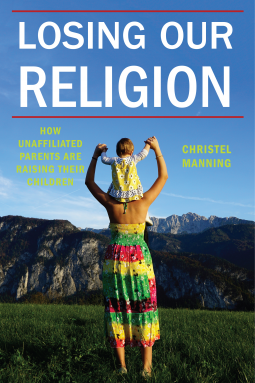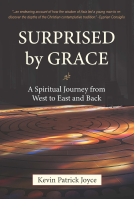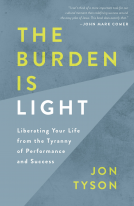
Losing Our Religion
How Unaffiliated Parents Are Raising Their Children
by Christel J. Manning
This title was previously available on NetGalley and is now archived.
Send NetGalley books directly to your Kindle or Kindle app
1
To read on a Kindle or Kindle app, please add kindle@netgalley.com as an approved email address to receive files in your Amazon account. Click here for step-by-step instructions.
2
Also find your Kindle email address within your Amazon account, and enter it here.
Pub Date Nov 20 2015 | Archive Date Feb 03 2016
Description
Examines how "Religious Nones" negotiate tensions with those who think they ought to provide their children with a religious upbringing
The fastest growing religion in America is—none! One fifth of Americans now list their religion as “none,” up from only 7 percent two decades ago. Among adults under 30, those poised to be the parents of the next generation, fully one third are religiously unaffiliated. Yet these “Nones,” especially parents, still face prejudice in a culture where religion is widely seen as good for your kids. What do Nones believe, and how do they negotiate tensions with those convinced that they ought to provide their children with a religious upbringing?
Drawing on survey data and in-depth personal interviews with religiously unaffiliated parents across the country, Christel Manning provides important demographic data on American “Nones” and offers critical nuance to our understanding of the term. She shows that context is crucial in understanding how those without religious ties define themselves and raise their families. Indeed, she demonstrates that Nones hold a wide variety of worldviews, ranging from deeply religious to highly secular, and transmit them in diverse ways. What ties them all together is a commitment to spiritual choice—a belief in the moral equivalence of religions and secular worldviews and in the individual’s right to choose—and it is that choice they seek to pass on to their children.
The volume weaves in stories from the author’s interviews throughout, showing how non-religious parents grapple with pressure from their community and how they think about religious issues. Engagingly written and thoroughly researched, Losing Our Religion will appeal to scholars, parents, and anyone interested in understanding the changing American religious landscape.
Advance Praise
“A very useful and timely addition to the sociological literature on the fast growing population of Nones, which is having a growing impact on 21st century American society. The dilemmas facing the current generation of parents who self-identify with no religion and have to grapple with the question of how to raise their children can be a real challenge for many couples. This book provides valuable insights and guidance by offering a rich body of material including a societal overview, interviewees’ stories, and the author’s own experience as a parent."--Barry A. Kosmin, Director, Institute for the Study of Secularism in Society & Culture, Trinity College
“The 'rise of the Nones' has been the decade's most important story about religion in America, but we know very little about what distinguishes the religiously unaffiliated from other Americans. In this sophisticated yet accessible qualitative study, Christel Manning provides a fascinating view of how None parents negotiate the moral and spiritual upbringing of their children.”--Mark Silk, Trinity College
To Sunday school
or not to Sunday school? To the intriguing question of how parents
without religious affiliation raise their children, the answers vary, as do the
parents studied here. Manning (Professor of Religious Studies/Sacred Heart
Univ.; God Gave Us The Right: Conservative Catholic, Evangelical Protestant,
and Orthodox Jewish Women Grapple with Feminism, 1999, etc.) opens with data
about the rapidly growing number of people in the United States, especially
those under 30, who list "none" when asked to indicate their
religious affiliation. The author divides the "Nones" into four
categories—unchurched believer, spiritual seeker, philosophical secularist, and
the indifferent—which she takes pains to differentiate. She discusses the
plusses and minuses of five strategies by which parents attempt to transmit a worldview
to their children: going back to church, finding an alternative community,
doing it oneself, letting others do it, and finally, doing nothing. In addition
to using existing surveys and demographic data, Manning conducted interviews
with Nones across the country, seeking to discover how they differ from
churched Americans, asking what choices they made about including religion in
their children's lives, what strategies they adopted, how community and family
pressures shaped their choices, and how having children affected their own
worldviews. A self-identified None, she clearly established a rapport with her
subjects that enabled her to extract thoughtful, revealing answers. She summarizes
some responses and quotes extensively from others, making the book longer than
absolutely necessary but more pleasurable than a more academic text. Having
presented the results of her study and analyzing its significance, the author
then muses on the meaning of choice in religion, the significance of this trend
toward personal choice, and its impact on the culture at large. As to whether
it is better to raise children with or without religion, her conclusion is that
more study is needed to answer that question. Refreshingly nonpolemical—will be
of special interest to secular parents struggling with some of the issues
presented.--Kirkus Reviews
Available Editions
| EDITION | Other Format |
| ISBN | 9781479883202 |
| PRICE | $36.00 (USD) |















